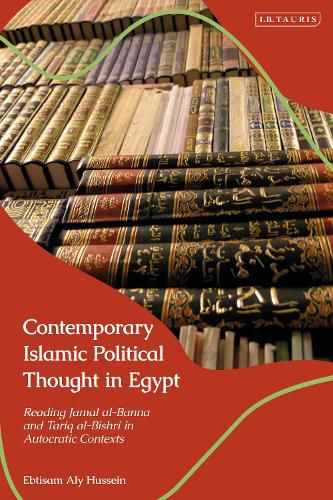Readings Newsletter
Become a Readings Member to make your shopping experience even easier.
Sign in or sign up for free!
You’re not far away from qualifying for FREE standard shipping within Australia
You’ve qualified for FREE standard shipping within Australia
The cart is loading…






This book takes a hermeneutic approach toward reading the writings of Jamal al-Banna and Tariq al-Bishri across several decades in order to explore contemporary Islamic political thought under authoritarianism. Ebtisam Aly Hussein uses the framework of 'meta-languages', in relation to the writings of these two particular Islamic intellectuals, to examine how authority over the public sphere is established, in both religious and political terms. Chapters outline the major themes of Islamic political thought in the writings of al-Banna and al-Bishri - mainly the state in Islam, Shari'a application, political violence as jihad, and identity politics - and how in their writings they have interacted with a variety of autocratic practices under Nasir, Sadat and Mubarak. The book puts forward a unique study of the role of politics and religion in establishing authority over the public sphere, and how this authority is manifested in the intellectual output of these two Islamic intellectuals.
$9.00 standard shipping within Australia
FREE standard shipping within Australia for orders over $100.00
Express & International shipping calculated at checkout
This book takes a hermeneutic approach toward reading the writings of Jamal al-Banna and Tariq al-Bishri across several decades in order to explore contemporary Islamic political thought under authoritarianism. Ebtisam Aly Hussein uses the framework of 'meta-languages', in relation to the writings of these two particular Islamic intellectuals, to examine how authority over the public sphere is established, in both religious and political terms. Chapters outline the major themes of Islamic political thought in the writings of al-Banna and al-Bishri - mainly the state in Islam, Shari'a application, political violence as jihad, and identity politics - and how in their writings they have interacted with a variety of autocratic practices under Nasir, Sadat and Mubarak. The book puts forward a unique study of the role of politics and religion in establishing authority over the public sphere, and how this authority is manifested in the intellectual output of these two Islamic intellectuals.